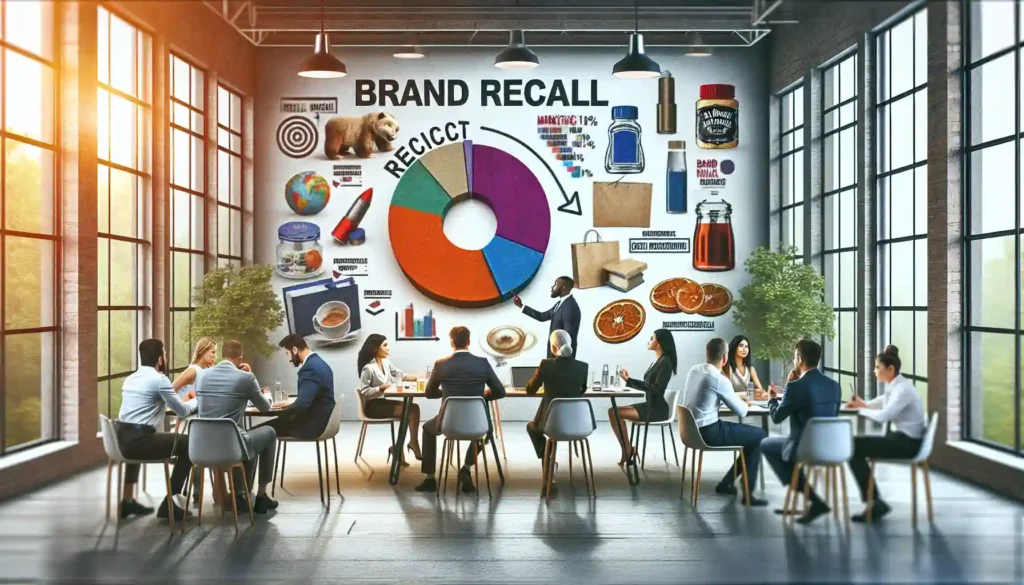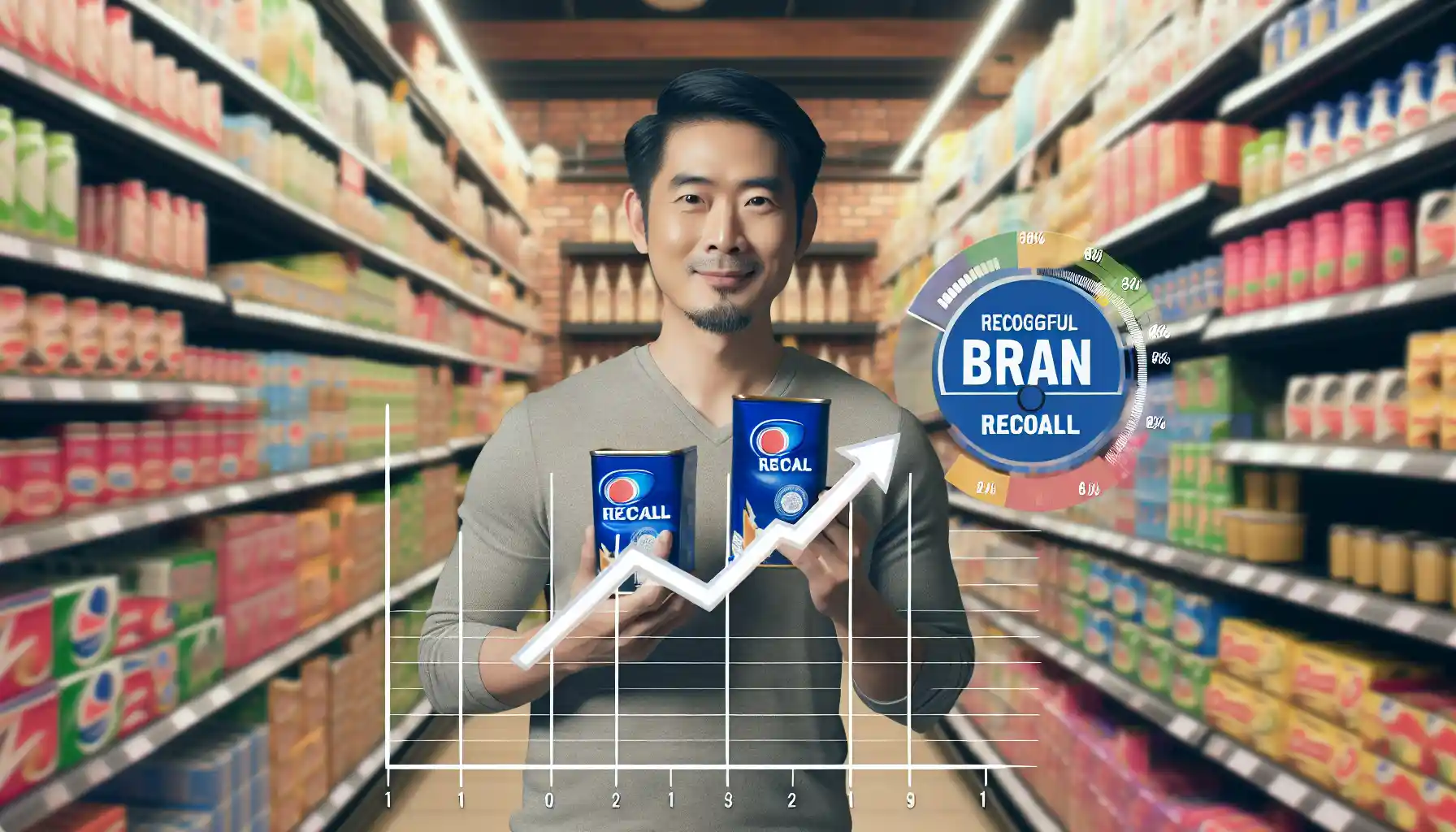What is the importance of brand recall in marketing success

Brand recall is a fundamental aspect of marketing that plays a pivotal role in the effectiveness of a company’s outreach strategies. It refers to the ability of consumers to easily remember a brand when they think of a specific product or service. This cognitive capacity can significantly influence purchasing behaviors and preferences, making it a valuable asset for businesses striving for success. Effective brand recall not only allows brands to occupy a prominent position in consumers' minds but also translates into higher sales and customer loyalty, which are crucial for sustained growth.
Understanding the nuances of brand recall is essential for marketers looking to craft campaigns that resonate with their audience. It involves more than just brand awareness; it’s about establishing a strong connection with consumers so that they instinctively think of a brand first when making purchasing decisions. In an increasingly competitive marketplace, companies must focus on enhancing their brand recall to stand out, drive sales, and build lasting brand equity.
- Understanding the Concept of Brand Recall in Marketing
- The Difference Between Aided and Unaided Brand Recall
- The Role of Brand Recall in Driving Sales and Revenue
- Enhancing Competitiveness Through Effective Brand Recall
- Building Brand Equity: The Long-Term Benefits of Strong Recall
- Key Factors Influencing Brand Recall Among Consumers
- The Importance of Memorable Branding Elements
- Crafting Compelling Brand Stories for Better Recall
- The Impact of a Positive Brand Reputation on Recall
- Effective Communication Strategies to Boost Brand Recall
- Measuring Brand Recall: Surveys and Insights
- Using Brand Recall Insights to Foster Customer Loyalty
- Becoming the Preferred Choice: The End Goal of Strong Brand Recall
Understanding the Concept of Brand Recall in Marketing
The concept of brand recall plays a significant role in how consumers interact with different brands. Surrounding the consumer's experience with a brand, it encompasses various dimensions—recognition of the name, logo, products, and the association of those elements with specific qualities or emotions. Brand recall often determines a consumer's choice, influencing which product they purchase when faced with multiple options.
In marketing terms, a brand that can evoke quick recognition can drive higher sales volumes. Whether during an in-store shopping experience or online browsing, if a brand can be recalled effortlessly, it increases the likelihood of being chosen over competitors. Building this kind of memorability requires strategic marketing efforts and initiatives designed to create robust emotional connections with target audiences.
The Difference Between Aided and Unaided Brand Recall

To fully understand brand recall, it is essential to distinguish between aided and unaided brand recall. Both types are critical metrics when evaluating the effectiveness of marketing campaigns and brand strategies.
Aided Brand Recall
Aided brand recall occurs when a consumer can recognize a brand upon receiving a prompt or cue. For instance, when presented with a list of options or hints, consumers may recall specific brands associated with those cues. This is common in surveys where participants are asked if they remember specific brands that relate to a given category, such as soft drinks or athletic wear. Aided recall is important because it demonstrates how well a brand is positioned in the minds of consumers, especially when competing alongside similar offerings.
Unaided Brand Recall
In contrast, unaided brand recall refers to the ability of consumers to remember a brand without any external prompts. For example, if someone is asked to name their favorite car brand and can do so without any hints, that’s an example of unaided recall. This form of recall is often viewed as a stronger indicator of brand strength because it reflects deep cognitive familiarity with the brand, making it a critical focus for marketers aiming to establish lasting brand presence in consumer minds.
The Role of Brand Recall in Driving Sales and Revenue
The link between brand recall and sales is undeniable. High levels of brand recall can significantly impact a company’s bottom line. When consumers can easily remember a brand, they are more likely to choose it over competitors, influencing purchasing decisions. A study by Nielsen indicated that brands with higher recall rates saw a direct correlation to increased sales, demonstrating that capturing attention can translate into monetary gains.
By employing well-structured marketing plans that prioritize memory retention, companies can enhance their visibility in consumer consciousness. Strategies may include consistent branding efforts, engaging advertising campaigns, and innovative product placements that reinforce brand associations. In a saturated market, achieving high brand recall could mean the difference between success and obscurity.
Enhancing Competitiveness Through Effective Brand Recall
In today's business landscape, competition is fierce across all sectors. Enhancing brand recall is an essential strategy for establishing a competitive edge. Companies with strong brand recall find it easier to differentiate their products and services, helping them rise above the noise created by competitors.
To enhance competitiveness, businesses can focus on several factors:
- Consistent Messaging: Ensure that all marketing materials convey the same message and tone to build a cohesive image.
- Unique Selling Proposition (USP): Clearly articulate what makes the brand special or different from others.
- Engaging Content: Create content that resonates emotionally with the target audience to foster a deeper connection.
Such efforts not only improve brand recall but also encourage customer advocacy, as satisfied consumers become brand ambassadors who recommend the brand to others, thus amplifying its reach and influence.
Building Brand Equity: The Long-Term Benefits of Strong Recall

Strong brand recall is closely tied to building brand equity—the perceived value of a brand in the eyes of consumers. Brands that maintain high recall rates often enjoy superior market positioning, leading to greater consumer trust and loyalty. When customers easily recall a brand, they are more likely to associate it with positive experiences and qualities, fostering long-term relationships.
Building brand equity is a strategic investment that pays off over time. Benefits include:
- Customer Loyalty: Consumers are more likely to repeat purchases from a brand they recall easily.
- Pricing Power: Brands with high recall can often command premium pricing due to perceived value.
- Resilience to Competition: Strong equity helps brands withstand market fluctuations and competitive threats.
To cultivate brand equity, businesses must prioritize their recall strategies, aiming for consistency and memorability in every interaction with consumers.
Key Factors Influencing Brand Recall Among Consumers
Various factors can significantly influence brand recall, affecting how consumers perceive and remember a brand. Understanding these factors helps marketers craft successful campaigns that resonate with target audiences.
Memorable Branding Elements
Visual elements, such as logos, colors, and typography, play a vital role in memorability. Brands that utilize unique and striking visuals are more likely to be remembered. Think of iconic brands; their logos alone evoke immediate recognition.
Emotionally Charged Messaging
Messages that evoke emotional responses are more memorable. Brands that can connect emotionally with their audience stand a better chance of being remembered. Storytelling, humor, and relatable scenarios can amplify emotional engagement, enabling better recall.
Repetition and Consistency
Revisiting key messages across multiple channels reinforces brand recall. Consistent use of branding elements across platforms ensures that consumers get a cohesive message, making it easier to recall the brand in the future.
The Importance of Memorable Branding Elements
Memorable branding elements are crucial in enabling brand recall. Elements such as logos, taglines, and mascots become synonymous with the brand identity. These components not only help in distinguishing a brand from its competitors but also cater to the subconscious mind, allowing for immediate recall during purchase decisions.
Here are specific examples of memorable branding elements that aid recall:
- Logos: A well-designed logo can encapsulate a brand's ethos and values, becoming instantly recognizable.
- Color Schemes: Distinct color combinations can trigger instant recognition and association, as seen with brands like Coca-Cola and Tiffany & Co.
- Slogans: A catchy and meaningful tagline reinforces brand values and concepts, embedding them in consumers’ minds.
Marketers must prioritize the development of such elements thoughtfully to enhance brand recall effectively.
Crafting Compelling Brand Stories for Better Recall
Storytelling holds immense power in enhancing brand recall. When brands communicate their message through engaging narratives, they create emotional connections with consumers. An interesting story makes a brand relatable and memorable, imprinting its identity into consumers’ minds.
To craft compelling brand stories, consider the following:
- Authenticity: Share real experiences, challenges, and successes that provide depth to your brand personality.
- Relatability: Use scenarios that customers can relate to, making the brand feel familiar and trustworthy.
- Visual Elements: Include visuals such as videos or images that resonate with the story, enhancing recall through multi-sensory experiences.
When structured effectively, brand stories not only evoke emotion but also enhance recall, making the brand unforgettable.
The Impact of a Positive Brand Reputation on Recall
Brand reputation plays an integral role in amplifying brand recall. A positive reputation encourages consumers to remember a brand favorably and recommend it to others. Brands that consistently maintain quality, uphold ethical standards, and engage positively with their audience are more likely to be recalled and trusted.
To enhance brand reputation, businesses should:
- Prioritize Customer Experience: Provide exceptional service and support to foster loyalty and positive word-of-mouth.
- Engage in Corporate Social Responsibility (CSR): Participating in community initiatives and environmentally friendly practices bolsters a brand’s image.
- Address Feedback Promptly: Listen to customers and address their concerns sincerely; this builds trust and reflects positively on the brand.
By cultivating a positive reputation, brands can enhance recall, ultimately leading to increased sales and loyalty.
Effective Communication Strategies to Boost Brand Recall
Effective communication is essential in ensuring brand recall. Brands must communicate their value proposition clearly and compellingly to resonate with their audience. Multi-channel approaches can reach diverse segments, enhancing exposure to the brand.
Consider the following strategies to optimize communication:
- Consistent Messaging: Ensure a unified message across all platforms to reinforce brand identity and recall.
- Interactive Content: Engage consumers through quizzes, polls, and social media interactions that invite participation and increase connection.
- Personalization: Tailor messages to specific customer preferences and behaviors to make them feel valued and understood.
Effective communication builds familiarity and trust, both of which are critical for enhancing brand recall.
Measuring Brand Recall: Surveys and Insights
Understanding the effectiveness of brand recall requires systematic measurement. Surveys and consumer feedback are essential tools in gauging how well a brand is remembered. These insights guide future marketing strategies and reveal strengths and weaknesses in current approaches.
Key methods of measuring brand recall include:
- Surveys: Direct surveys that pose questions about brand recognition can help identify aided and unaided recall levels.
- Focus Groups: Engaging focus groups can yield qualitative insights into consumer perceptions and memory of a brand.
- Brand Tracking Studies: Continuous tracking of brand performance over time provides valuable insights into how brand recall evolves.
Measuring brand recall enables businesses to optimize their strategies continually and strengthen their presence in the market.
Using Brand Recall Insights to Foster Customer Loyalty

Insights gained from measuring brand recall can be invaluable in building customer loyalty. Brands that understand what resonates with their audience can create targeted strategies to deepen connections. Recognizing which messages, stories, or aspects of a brand customers recall helps tailor future marketing efforts effectively.
To foster customer loyalty through brand recall insights, marketers should:
- Segment Audiences: Use data to divide customers into segments for personalized approaches that meet their distinct needs.
- Create Loyalty Programs: Develop initiatives that reward repeat customers, reinforcing their connection to the brand.
- Encourage User-Generated Content: Promote social engagement where existing customers share their experiences, enhancing visibility and recall.
Building a loyal customer base around high brand recall creates a sustainable growth path, enabling brands to thrive even in competitive landscapes.
Becoming the Preferred Choice: The End Goal of Strong Brand Recall
Ultimately, strong brand recall positions a brand as the preferred choice among consumers. Being top-of-mind allows brands to benefit from ongoing sales and the referrals that typically accompany customer loyalty. When customers consistently remember and prefer a brand over its competitors, it drives long-lasting success.
Achieving this goal requires consistent efforts in brand management, marketing messaging, and customer engagement. Companies must emphasize the essential elements of brand recall within their overall strategy to ensure they remain the go-to choice in their respective markets.
To conclude about - brand recall
In conclusion, understanding the importance of brand recall in marketing success is paramount for businesses aiming to thrive in competitive environments. By reinforcing memorable branding, crafting compelling stories, and maintaining positive reputations, brands can enhance their visibility and credibility. With strategic measurement and tactical execution, strong brand recall leads to increased sales, bolstered brand equity, and ultimately positions a brand as the preferred choice among consumers. Therefore, investing in brand recall strategies is not just essential; it is foundational for sustained marketing success.
Si quieres conocer otros artículos parecidos a What is the importance of brand recall in marketing success puedes visitar la categoría Branding Business.

Leave a Reply